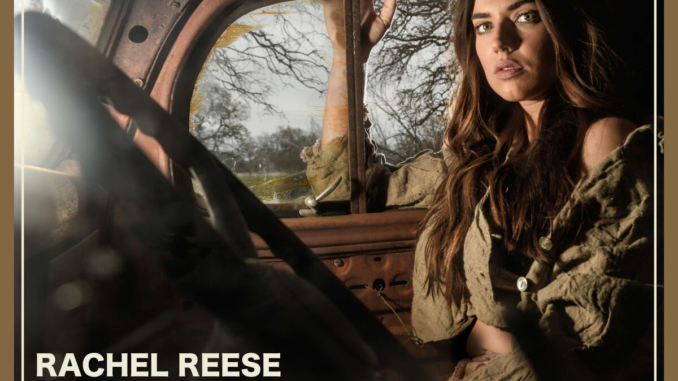
Dozen Roses, the new single by Texas-based songstress Rachel Reese is polarizing, to say the least. At its worst, it suffers from a full-on identity crisis. At its best, it’s proof that Reese has more than enough talent to make us remember her voice.
Whether she dabbles in pop with Love-Broke off of “Solstice,†or she embraces a darker feel– like she did in herDark Horse EP, Reese has the ability to evoke a wide range of influences and draw in plenty of ears. Her last release, the Siren EP, also showed that her voice can match heavier and more traditional country instrumentals. While the diversity and multifaceted approach proves she’s eclectic and capable, it makes Dozen Roses seem far less musically proficient in comparison.
Lyrically, things are solid however as this country break-up song hits hard off the bat with “damn right, I’ve been drinking and I’m not stopping anytime soon.†The song starts with an attitude, reinforced with such lines as “go on what’re you waiting for? This mind, this heart won’t be changing no more.†The lyrics evoke the power felt in similar songs like old school Taylor Swift or Miranda Lambert, with the soul of their more defiant and heavier break-up tracks within. For that reason, it has an audience, but it could have been more than an anthem for scorn damsels.
In the end, the problems are sadly wholly with the instrumentals– not Reese’s ability to carry a tune. The instrumentals and mixing simply do not evoke the same attitude as the lyrics. The lyrics constantly evoke an air of defiance in light of the events in the song. The instrumentals ironically oppress what could have been a strength in Dozen Roses and keep the mood not only dreary but uninteresting. From this track, one would never tell that her voice can be bubbly and upbeat. Or powerful, like on her Siren EP last year.
That being said, the defiantly sorrowful lyrics of Dozen Roses evoke a mood of power over sadness that clash with the weak and slow instrumentals. Plodding guitar work with weak percussions frankly hold back the power of Reese’s vocals that should dictate the narrative of this track.
When the song picks up at the last minute, she explodes with power that should have started during the first chorus. Sadly, this is the fault of the producer and not Reese, who proves herself as a talented vocalist on the track, but it’s not greater than all of the song’s mediocre parts. Truth be told, a remix- one that features Reese more, could save this one entirely.
As a result, Reese definitely needs to embrace herself and “take it from here†as she states in the final leg of the track, as it is the most memorable minute and twenty seconds here.

Leave a Reply